Shabnam Rezapour
Blockchain-Empowered Cyber-Secure Federated Learning for Trustworthy Edge Computing
Dec 30, 2024



Abstract:Federated Learning (FL) is a privacy-preserving distributed machine learning scheme, where each participant data remains on the participating devices and only the local model generated utilizing the local computational power is transmitted throughout the database. However, the distributed computational nature of FL creates the necessity to develop a mechanism that can remotely trigger any network agents, track their activities, and prevent threats to the overall process posed by malicious participants. Particularly, the FL paradigm may become vulnerable due to an active attack from the network participants, called a poisonous attack. In such an attack, the malicious participant acts as a benign agent capable of affecting the global model quality by uploading an obfuscated poisoned local model update to the server. This paper presents a cross-device FL model that ensures trustworthiness, fairness, and authenticity in the underlying FL training process. We leverage trustworthiness by constructing a reputation-based trust model based on contributions of agents toward model convergence. We ensure fairness by identifying and removing malicious agents from the training process through an outlier detection technique. Further, we establish authenticity by generating a token for each participating device through a distributed sensing mechanism and storing that unique token in a blockchain smart contract. Further, we insert the trust scores of all agents into a blockchain and validate their reputations using various consensus mechanisms that consider the computational task.
A Survey on Secure and Private Federated Learning Using Blockchain: Theory and Application in Resource-constrained Computing
Mar 24, 2023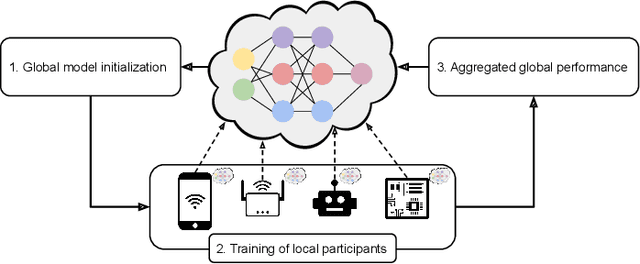
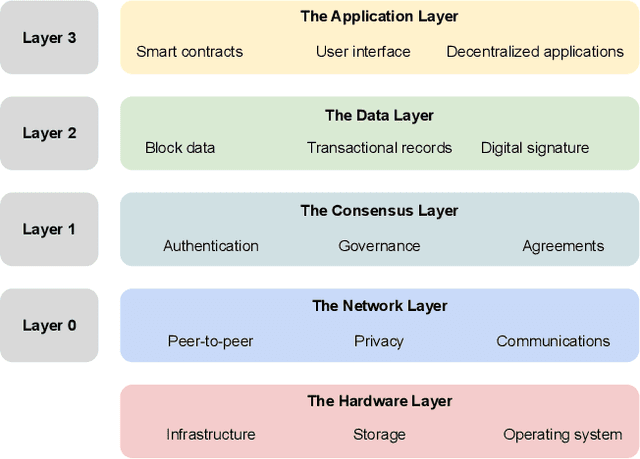
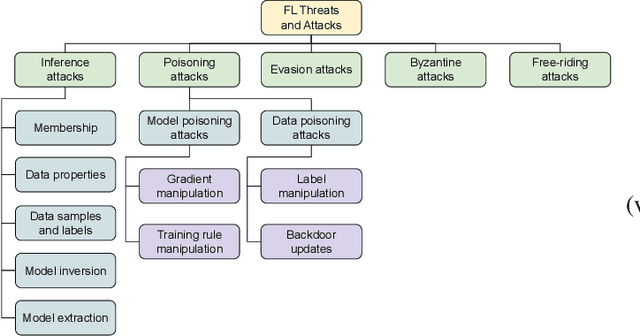
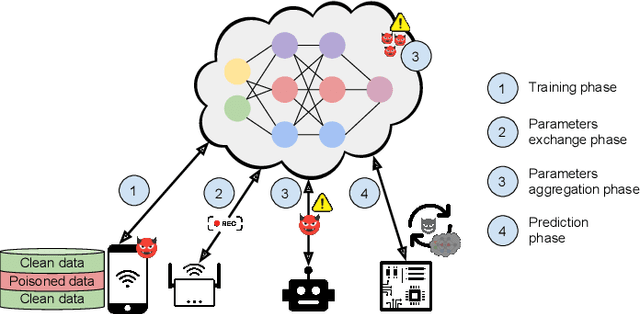
Abstract:Federated Learning (FL) has gained widespread popularity in recent years due to the fast booming of advanced machine learning and artificial intelligence along with emerging security and privacy threats. FL enables efficient model generation from local data storage of the edge devices without revealing the sensitive data to any entities. While this paradigm partly mitigates the privacy issues of users' sensitive data, the performance of the FL process can be threatened and reached a bottleneck due to the growing cyber threats and privacy violation techniques. To expedite the proliferation of FL process, the integration of blockchain for FL environments has drawn prolific attention from the people of academia and industry. Blockchain has the potential to prevent security and privacy threats with its decentralization, immutability, consensus, and transparency characteristic. However, if the blockchain mechanism requires costly computational resources, then the resource-constrained FL clients cannot be involved in the training. Considering that, this survey focuses on reviewing the challenges, solutions, and future directions for the successful deployment of blockchain in resource-constrained FL environments. We comprehensively review variant blockchain mechanisms that are suitable for FL process and discuss their trade-offs for a limited resource budget. Further, we extensively analyze the cyber threats that could be observed in a resource-constrained FL environment, and how blockchain can play a key role to block those cyber attacks. To this end, we highlight some potential solutions towards the coupling of blockchain and federated learning that can offer high levels of reliability, data privacy, and distributed computing performance.
Search Algorithms for Automated Hyper-Parameter Tuning
Apr 29, 2021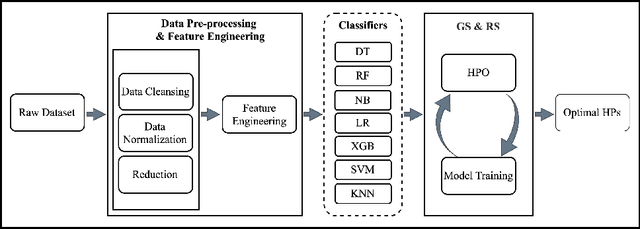
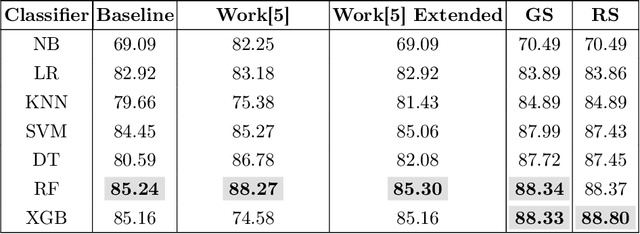
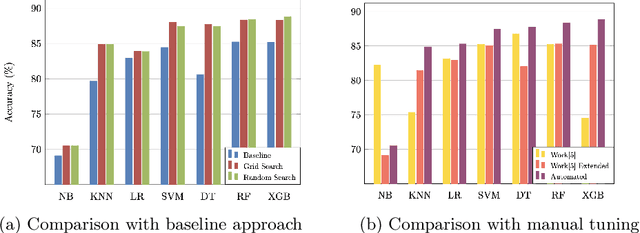
Abstract:Machine learning is a powerful method for modeling in different fields such as education. Its capability to accurately predict students' success makes it an ideal tool for decision-making tasks related to higher education. The accuracy of machine learning models depends on selecting the proper hyper-parameters. However, it is not an easy task because it requires time and expertise to tune the hyper-parameters to fit the machine learning model. In this paper, we examine the effectiveness of automated hyper-parameter tuning techniques to the realm of students' success. Therefore, we develop two automated Hyper-Parameter Optimization methods, namely grid search and random search, to assess and improve a previous study's performance. The experiment results show that applying random search and grid search on machine learning algorithms improves accuracy. We empirically show automated methods' superiority on real-world educational data (MIDFIELD) for tuning HPs of conventional machine learning classifiers. This work emphasizes the effectiveness of automated hyper-parameter optimization while applying machine learning in the education field to aid faculties, directors', or non-expert users' decisions to improve students' success.
 Add to Chrome
Add to Chrome Add to Firefox
Add to Firefox Add to Edge
Add to Edge